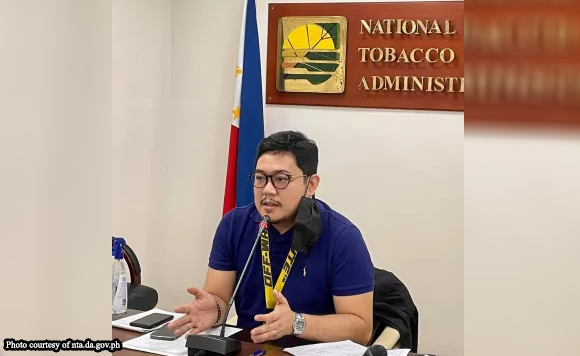THE law, Omnibus Election Code, is clear enough. Listed under letter x of Section 21 (“Prohibited Acts”) is suspension of any elective officer–provincial, city, municipal or barangay–without prior approval of the Comelec. Would the suspension of Cebu Gov. Gwen Garcia during the election period with no Comelec clearance violate the election law?
Let’s unpack what the law says: Who can violate it? “Any public official.” Against whom may it be committed? “Any elective officer.” Kinds of suspension covered? All, unless the suspension applies to the Anti-Graft and Corrupt Practices Act.
DOES THE EXCEPTION APPLY? Check out the Omnibus Election Code’s exception. Does the offense Guv Gwen is administratively accused of relate to the Anti-Graft and Corrupt Practices Act?
The charges, which stemmed from a special permit granted to a private company, are “grave abuse of authority, gross misconduct, serious dishonesty, conduct prejudicial to the best interest of the service, and violation of the Code of Conduct and Ethical Standards for Public Officials and Employees.” Does anything in the list involve graft or corrupt practice for the suspension to get out of the Comelec ambit?
Apparently, it does. No need for Comelec approval because under Republic Act 3019, the anti-corruption law, the acts allegedly committed by the governor may qualify as “corrupt practices of public officers” (section 3, letter “e”).
Also considered corrupt practice, the law says, is “causing undue injury to any party, including the Government, or giving any private party any unwarranted benefits, advantage, or preference in the discharge of his official… functions through manifest partiality, evident bad faith or gross inexcusable negligence…”
All that has been disputed by the governor but apparently mere claim that it involves “corrupt practices,” as defined by the law, is enough to remove the Comelec-OK requirement.
WORD FROM COMELEC CHIEF. A January 13, 2025 news story quoted Comelec Chairman George Garcia, who was then clarifying the law on transfer and suspension of government workers, thus: “Starting now (that day) until June 12, kailangan may pahintulot ng Comelec.” But, here’s the “but,” Garcia said the Ombudsman “can proceed with its function without the need to secure exemption from Comelec.”
Comelec’s Garcia must have in mind then the exception to the requirement under the Omnibus Election Code, section 21, letter X.
LAWYERS ADVISE GWEN TO STAY PUT. During a press briefing at the Cebu Capitol Wednesday, April 30, 2025, the governor’s lawyers held up as main shield and refuge the Omnibus Election Code, which lays down the rule that prior Comelec approval is required to suspend an elective officer during the election period and violation is a prohibited act.
An actual battery of lawyers cited the Local Government Code and its implementing rules. And they reportedly advised Guv Gwen to stay put, although most of the time during the current campaign period, she has been physically out of her Capitol office most of the time. What they mean, of course, is for the governor not to give up her seat yet.
Officials of the Department of Interior and Local Government are still to be heard from. Unlike in the Ombudsman suspension for six months of Cebu City mayor Mike Rama in May 2024 and suspension for one year of Mandaue City mayor Jonas Cortes in August 2024–when DILG was hyper-quick in installing their successors–this time the department comparatively moves in glacial pace. Which must be just fine with the governor’s camp.
‘IMMEDIATELY EXECUTORY.’ The Ombudsman ordered the preventive suspension of the Cebu governor for six months without pay in a ruling dated April 23, 2025 but served and announced April 30. The order is “immediately executory,” the document says. Any appeal, motion or petition by Garcia shall not interrupt the order.
Wording of the Ombudsman order must tell the public the anti-graft body was aware of the Omnibus Election Code and its list of prohibited acts, which include the suspension of any elective official.
Governor Garcia’s response included her gripe that (a) she was never given due process–no notice, no chance to reply–and (b) no Comelec approval was secured prior to the issuance of the suspension.
The governor and her rival can debate on those legal issues in the dying days of the campaign but ultimately it’s the courts that resolve them.
OF COURSE, POLITICS HAS A LOT TO DO WITH IT. And it’s not just due to the timing, although the choice of day to publicize the news mattered a lot. The “shocker,” as the news site Politico calls it, packs more wallop few precious days before the elections.
The governor must be ready with her legal defense–notably, serving public good and meeting requirements of vetting and consultation–on the allegedly illegal grant of a special permit for desilting activities in Mananga River in Talisay City and Lusaran River in Cebu City, which are part of the Central Cebu Protected Landscape.
The complainant alleged the permit was granted without environmental compliance and without prior consultation with government agencies involved, both of which Guv Gwen is set to disprove.
Beyond litigation over the core issue of suspension though is the question of political motive, such as (a) giving advantage to Gwen Garcia’s rival Pamela Baricuatro or (b) using it to prompt the governor to show active support for the administration party instead of fence-sitting on the Marcos-Duterte war. That may even be more complex than the legal aspect of the controversy.

